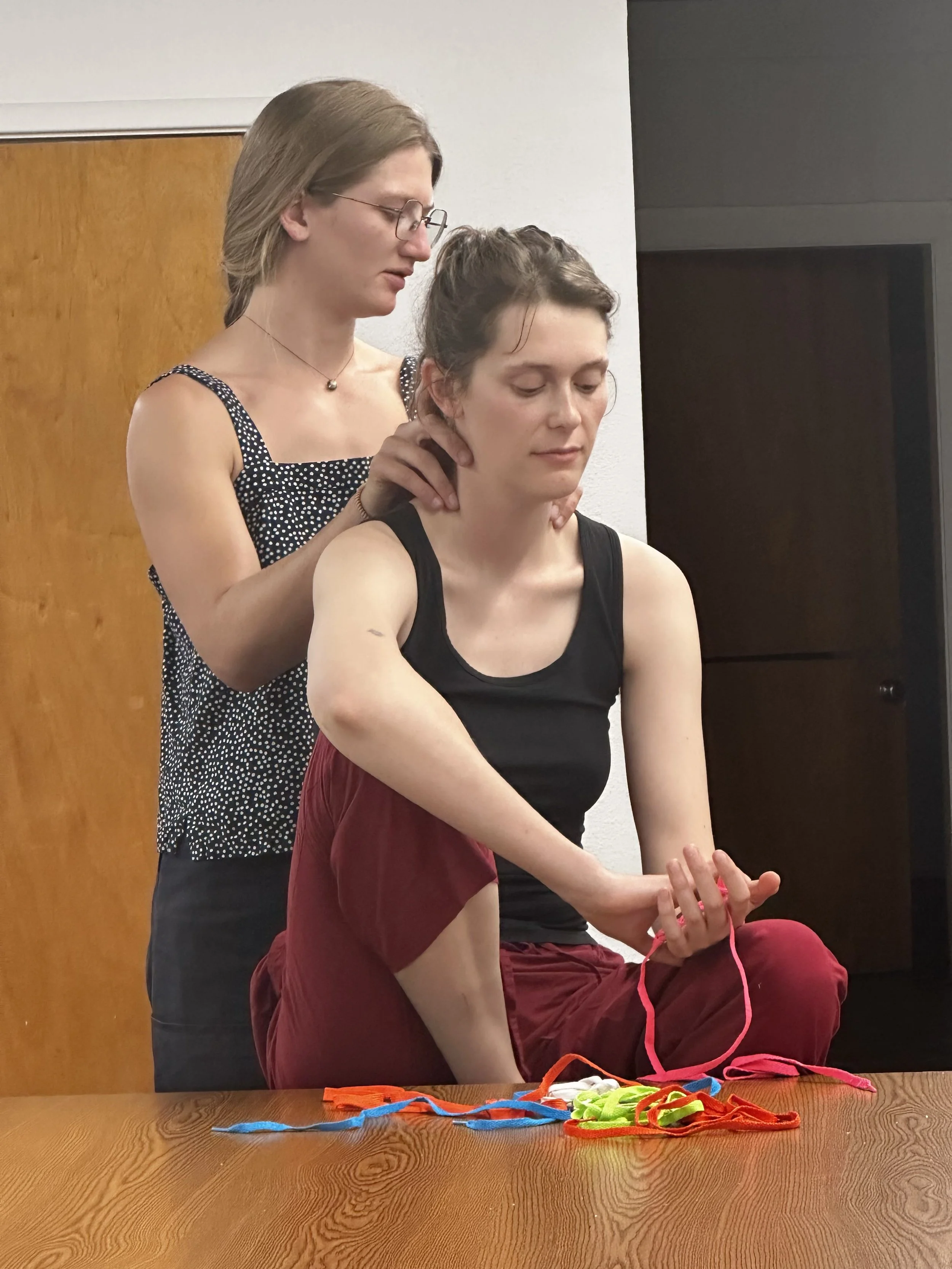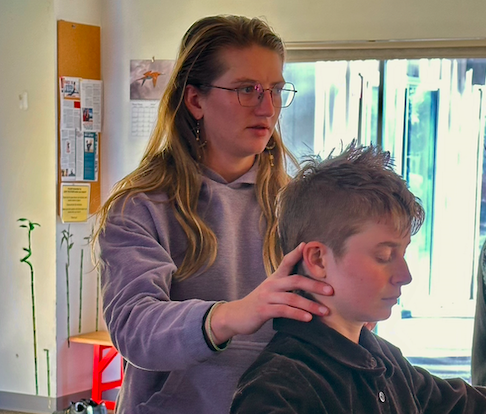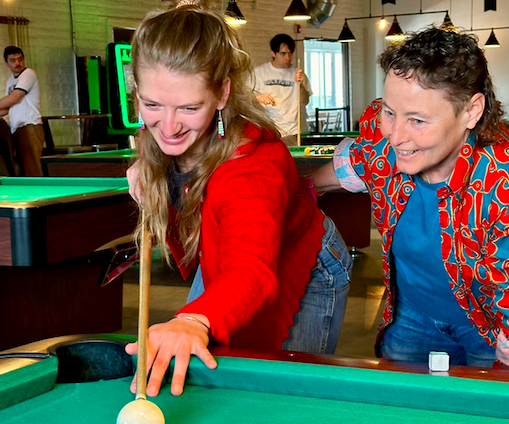Alexander Technique
A way to study how you live your life - notice habits, relieve tension, experience fresh choice, act with clarity.
The lineage of Contemporary Alexander Technique
Alexander Technique was personally explored and taught first by Frederick Matthias Alexander (b. 1869). After years of rigorous self-study, Alexander was able to alter his habits in order to cure chronic laryngitis. This prompted friends and colleagues to urge him to teach what he had discovered. After 35 years of refining his teaching, Alexander began to train others in his teaching methods.
“You translate everything, whether physical or mental or spiritual, into muscular tension.”-F. M. AlexanderMarjorie Barstow (b. 1899) was the first graduate from F. M. Alexander’s first teacher training course. After graduating, she returned to her hometown of Lincoln, Nebraska, and taught thousands of students, working up until shortly before her death at age 95. Marj’s practical approach to teaching was largely in the form of group teaching, and what she called and ‘extended apprenticeship.’ This approach gave her students the ability to teach both one-on-one lessons, as well as facilitate group study. She never favored a conventional training program, but issued a letter containing the names of her students who she considered ‘very well qualified as teachers of the Alexander Technique'.
"The ‘magic’, if you want to call it magic, is your constructive thinking.""I don’t work on the table. I think the Alexander Technique is about movement. I like to work with my pupils in their daily activities… I don’t believe in giving lessons in silence because I want to know what my pupils are thinking. I am not making a mechanical person out of them: I want my student to know what I’m doing; know how they experience it; talk it over with them."-Marjorie BarstowBruce Fertman was amoung these individuals who were approved by Marj to teach Alexander Technique and share the work with new students. Robyn Avalon studied with Bruce as well as Marj, and went on to found the Alexander Alliance with Bruce, an international learning community dedicated to teaching and evolving the work of F.M. Alexander.
The Contemporary Alexander School, founded and run by Robyn, is a living school based in the United States. This means that the school is designed to evolve based on the current faculty, student body, and conditions of the world. The school actively engages with the present needs of its students, and seek to create new teaching forms, relational skills, and practices. This process is challenging, and models a practice of growth that denies perfectionism in favor of revealing new and unexpected choices.
"Acceptance of yourself is...an essential tool."“Upright is the result of a successful fall”“Alexander Technique is a study of the quality of your life.”-Robyn Avalon


